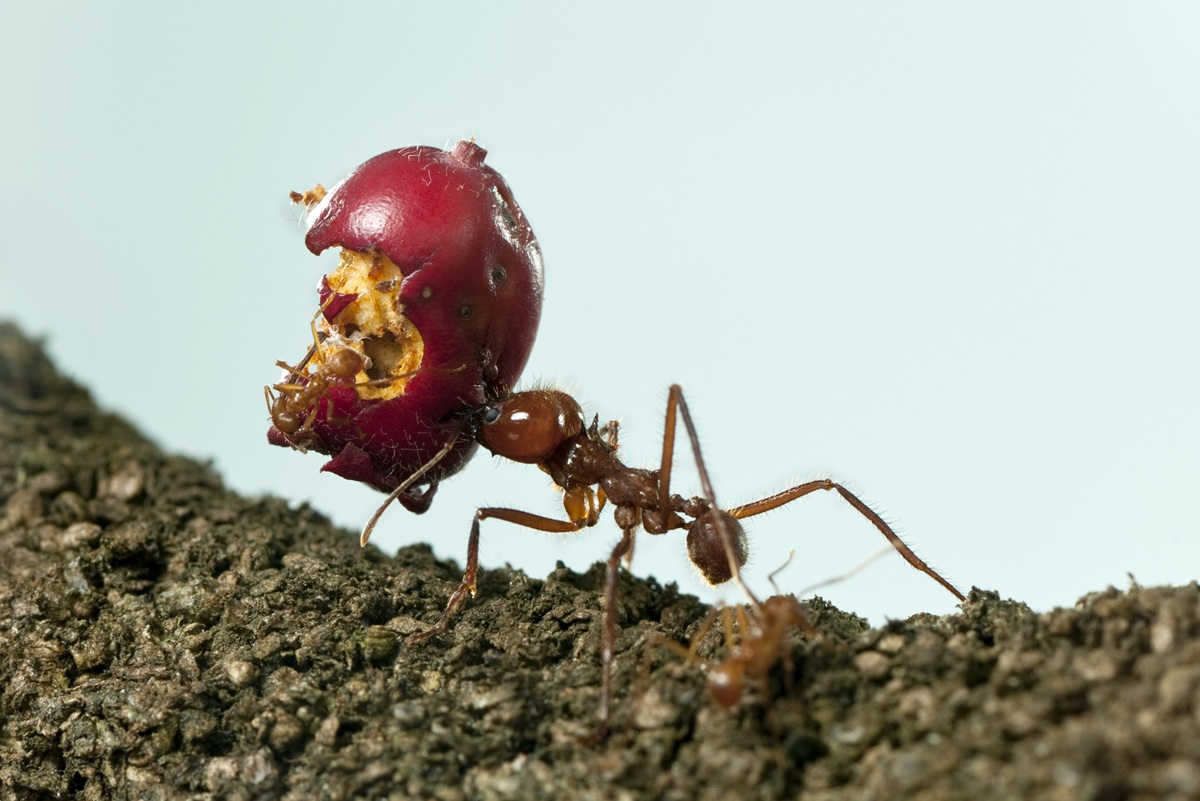Have you noticed ants in your vegetable garden? No need to panic! While they don’t directly threaten your vegetables, these little workers can become a nuisance, especially as they encourage the proliferation of aphids.
So, how can you naturally keep these little invaders away while maintaining the balance of your garden? Here are several simple and eco-friendly tips tested and approved by gardeners.
Ants in the vegetable garden: Friends or foes?
Ants truly deserve a place in our gardens. Did you know that these insects play a valuable role in promoting pollination and controlling certain populations of harmful insects?
By digging their countless underground tunnels, they even help aerate your soil, similar to how earthworms do. In France alone, there are no fewer than 200 different species of ants. So, it’s no surprise to spot them in our vegetable gardens!
However, some of their habits can be troublesome for gardeners. The most problematic? Their tendency to protect aphids from their natural predators, such as our precious ladybugs. As a result, aphids can multiply unchecked, feeding on your plants and weakening your harvests. It’s helpful to repel them without causing harm.
Understanding ant behavior to keep them away
Before taking action, take a moment to understand how they operate. These social insects live in colonies and possess a keen sense of organization.
As soon as one of them detects a food source, such as the honeydew produced by aphids, a scent trail is laid. This allows the entire colony to easily find the buffet, attracting even more ants and promoting their establishment near your vegetables.
These omnivorous insects consume both meat and seeds and willingly travel great distances in search of food. A well-established colony can quickly have a noticeable impact on your vegetable garden.
Simple and natural solutions to repel ants
Here are some practical alternatives to adopt immediately to naturally regulate their presence in your garden.
1. Remove aphids to dissuade ants
Ants love aphids? Let’s deprive them of their little protégés:
- Use soapy water on plants infested with aphids; it’s an eco-friendly and effective treatment.
- Focus on repelling plants for aphids such as lavender, mint, basil, sage, or ornamental tobacco.
- Water your crops with nettle tea or a garlic concoction.
- Feed your soil with rich compost to strengthen your plants’ resistance.
2. The lemon trick: Simple but effective
Ants dislike the acidity of lemon. So, spray a mix of water with lemon juice (one part lemon juice to three parts water).
You can also place used or slightly moldy lemon slices at the base of the plants; they will definitely flee.
3. Draw a line with chalk to keep ants away
As surprising as it may seem, a line of chalk drawn around the areas you want to protect is often enough to stop ants in their tracks. A quick tip that’s ideal for securing pots and planters on the balcony.
4. Add repellent plants
Certain smells strongly disturb ants. To discourage them from settling in, plant:
- Mint, basil, or garlic, which are essential and easy to grow;
- Marigolds, lavender, or tansy, which are both beautiful and effective in repelling these insects.
5. Coffee grounds for gardening
Don’t throw away your coffee grounds! Preferably damp, place them on the path taken by the ants. They will be attracted to it, but this food is toxic to them. The result? They will immediately change their route!
6. Cinnamon and essential oil: An effective natural defense
Cinnamon is not just for your desserts! Dispersing sticks near a nest or a few sprays of cinnamon essential oil will effectively repel ants.
7. Diatomaceous earth to use with caution
This natural powder, made from fossilized microorganisms, acts mechanically against insects.
A drastic solution, but be careful: it eliminates all insects indiscriminately, including valuable allies such as ladybugs. Use it only in the case of heavy targeted invasion.
Preserving biodiversity for a healthy garden
Rather than exterminating ants, simply repel them! This way, you’ll maintain the natural balance essential for a healthy vegetable garden. Every living being plays its role and contributes, in its own way, to the good development of your crops.
Integrate our eco-friendly tips into your gardening routine today for a harmonious coexistence.
And you, what are your preferred natural methods against ants? Have you tried any of these tips in your vegetable garden? Feel free to share your experiences in the comments. We’re interested in your feedback!
I’m a disabled, xennial Christ-follower, slightly off kilter (but aren’t all “ar-teeests”?).
Hope you enjoy my rantings, don’t take my sarcasm too seriously and know that comments are welcome. 🙂


Leave a Reply